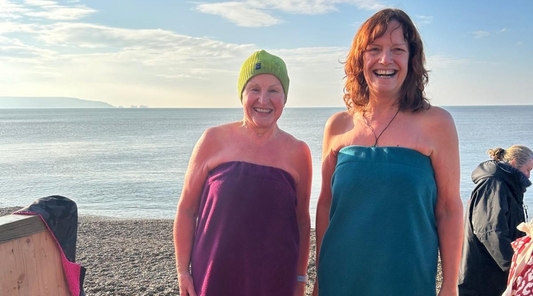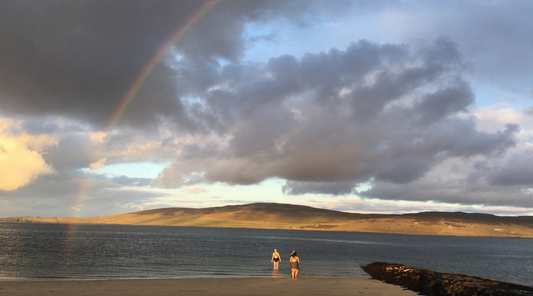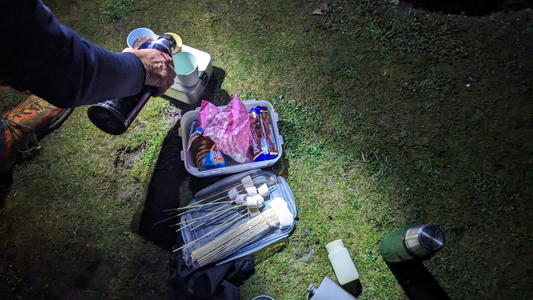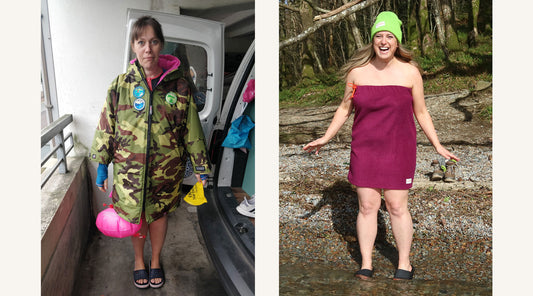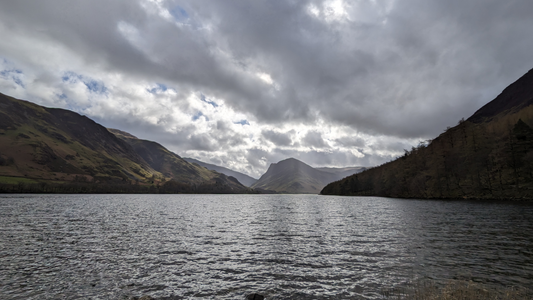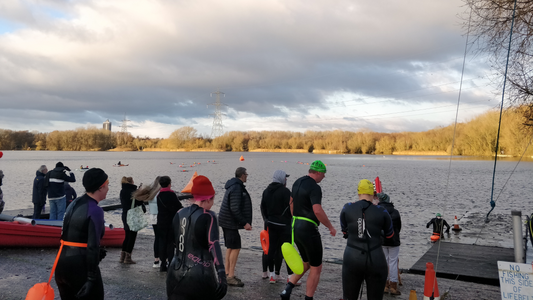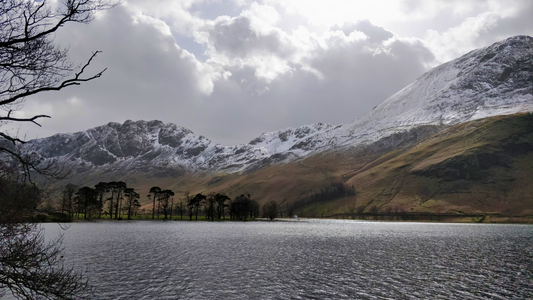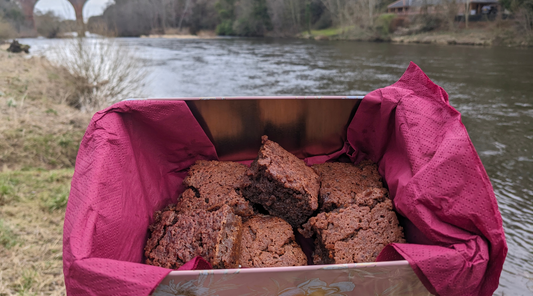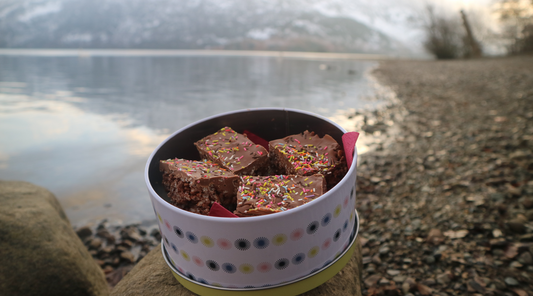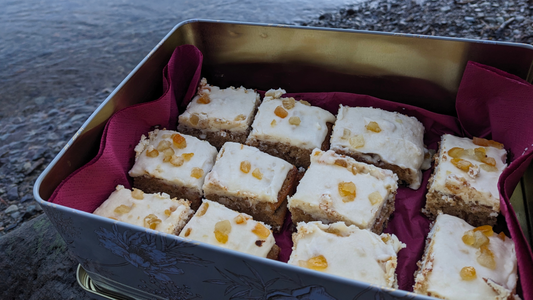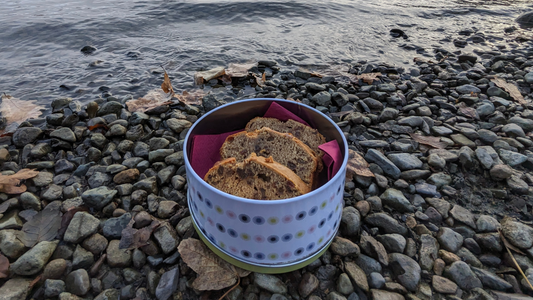The popularity of cold-water swimming is on the rise. Even those people with no interest are aware of it. But what is pulling people to the water? During the Covid lockdown, swimming venues were closed but the desire to swim remained and the outdoors beckoned. Since the reopening of pools, it would seem that the swimming population has found new benefits in swimming outdoors and in cold water.
History of cold water swimming
History is littered with accounts of swimming. Hippocrates back in 400BC noted the effects of water therapy as a way to relieve fatigue. People in the middle ages actively didn’t learn to swim as a precaution against being sent to hell. “Ahhh shucks… I can’t swim across the river Styx, I suppose I’ll just turn around and go to heaven…yeah?”
Swimming safety started in 1538 when German, Nikolaus Wynmann, who was frustrated with the amount of drownings, produced what is believed to be the first instructional book on swimming with the ‘human stroke’. This was later developed in 1589 by Cambridge Fellow Everard Digby (not to be confused with the other Everard Digby who planned the Gunpowder plot). He produced his own work highlighting backstroke and breaststroke. Later on, in the mid 18th century, the development of the seaside resorts across the UK stemmed from the recommendation that sea water dunking and drinking was a way to combat illness. But is cold water swimming good for you? Let’s have a look at what happens in the body when you are swimming.
What happens to your body during cold water swimming?
Our bodies are made up of some very sophisticated systems, which can get positive knock on effects from cold water swimming. But what are the systems and how are they affected?

Cold water swimming and your Cardiovascular System
Cardio - Heart
Vascular - Blood Vessels
The system oxygenate the blood and transport nutrients to the whole body.
Cold water swimming has been shown to lower your blood pressure, due to blood flowing away from your skin to focus its attention on the heart and internal organs. This is because it aims to keep them ticking over by keeping them warm during the cold-water exposure. Which means that the blood has less distance to flow and as such, pressure lowers.
When you get out of the water the cardiovascular system requires you to steadily get warm, but proactively. No dilly dallying on the shore while you enjoy the rush of “Oh I’m not cold”. This is because the blood in your skin and peripheral system has chilled, as such, it needs to be warmed so that when normal flow starts up again, cold blood isn’t going into your heart and internal organs ( otherwise known as after drop). So don’t hang about after your swim! You are still getting cold.
NB: If you have a heart condition PLEASE consult your doctor before going into the cold water, as it can cause arrhythmia and some less desirable outcomes.
Cold water swimming and your Nervous System
Neuro - nerve
The Nervous system communicates with all body parts. Its main job is to keep the body in functional working order.
The brain starts screaming “Bloody hell it’s cold” and your body responds. The sympathetic nervous system works when the body is put under pressure and signals from the brain activate the fight or flight response.
“Danger Will Robinson. Danger”
It prepares your body to be able to fight the sabre tooth tiger or run away from it. So your body will show some of these signs
- Dilated pupils to let in more light. This is so you can get as much visual information as possible.
- Heart beat increases, as your need to oxygenate your muscles enough to run away from the tiger.
- You wont feel hungry as your digestive organ activity is inhibited.
- You are likely to need a wee as the bladder is relaxed.
The skin is the biggest defence mechanism in the immune system. It’s a barrier and also an early warning system. With cold water swimming, the benefit it gives the body is that the skin receptors activates the parasympathetic nervous system. The opposite to the Sympathetic nervous system.
The Parasympathetic nervous system interacts with the Endocrine system to help keep the body in homeostasis (normal internal stability of the working body).
Some of the signs that will show your parasympathetic nervous system has been stimulated (generally when you have got over the first initial cold water shock) are:
- Your pupils will constrict (panic over)
- Your heart beat will slow - this is also due to the water cooling your body and the blood flow is focusing on your heart and internal organs
- You might start feeling peckish
- The Vagal tone is stimulated. Vagal tone is the activity of the Vagus nerve which is the 10th cranial nerve and runs from the brain, through the face and down towards the abdomen. Higher tone means that the nerve has a great capacity to endure challenging experience that can cause stress and by contrast, will have a higher capacity to activate rest and recovery within the body.

Cold Water Swimming and the Immune System
Immune- comes from the Latin 'Immunis' which means exempt from public service.
The system is made up of organs, cells and proteins that help to defend the body against disease.
It remembers past illnesses to create resistance if it gets the disease again.
The immune system main job is to remember and adapt thanks to previous experiences.
When you get your jabs, like the flu jab, what you are getting is a small amount of flu virus or components of the virus that your body can learn to recognise. This allows your body to activate it’s defences and it learns how to fight it. So when the full dose of flu comes along, the body has adapted it’s defences and knows how to fight back. This is what happens when you slowly adapt to the cold water. As your exposure grows, you become better equipped to deal with the experience.
By activating the immune system via cold water swimming, studies have shown that you can become less prone to infection. It remembers it’s last cold water experience (this is part of your acclimatisation to the cold) so that your reaction isn’t as flighty as last time. Swimmer Lewis Gordon Pugh’s bodily recall was so good, that studies saw that his internal body temperature actually increased by a couple of degrees even before he entered the water in anticipation of what was to come.

Cold water swimming and your Endocrine System
Endo - Greek term that means 'within'
Crine- meaning to separate or secrete
The system helps to regulate your biological process via hormones
Controls mood, growth, development, metabolism, reproduction and how organs work
Sympathetic activation prepares us for fight or flight, while parasympathetic activation is associated with normal functioning under relaxed conditions. The parasympathetic and endocrine system work to try to get the body back to normal service, this means that your metabolism will be activated to keep your body at the correct temperature. More active metabolism, the more you are burning those calories!
Top hormones activated by cold water swimming in the Endocrine System and what they do:
- Adrenaline - this is the main defence activated by the sympathetic nervous system. Adrenaline is the source that amps up your body so you can run from danger and stressful situations. Its main function is to increase blood flow to your muscles. It can also increase your respiratory rate which, in the case of cold-water swimming, needs to be regulated through mindful breathing, as this could otherwise lead to hyperventilation.
- Endorphins - relieves pain which can improve your sense of wellbeing and all in all, reduce stress levels. It is believed that endorphins are released at the same time as adrenaline. Maybe this is because the body wants you not to mind being eaten by the sabre tooth tiger.
- Noradrenaline - activates the sympathetic nervous system. The hormone works as a neurotransmitter to the brain regions that are associated with anxiety. It is also secreted from the adrenal gland which helps us to stay awake and alert. And in response to cold water swimming it can rise up to 180% within two minutes. One of the side effects of noradrenaline is that it can activate Brown Fat (more on that below).
- Cortisol - is activated under stressful situations like cold water swimming. It identifies that the body needs more energy and dutifully gets to work. It will increase your heart rate and blood pressure as you get ready to fight or get flighty. One of its duties is to keep you able to run away. This is why it inhibits the immune system’s ability to create inflammation. People who cold water swim often state that chronic pain goes when they are in the cold water. This my friends, is thanks, in part, to Cortisol.
- Dopamine - the happy hormone and neurotransmitter. Dopamine helps nerves to send and receive messages. The benefits of Dopamine are
- Improves motivation and learning
- Sleep
- Being happy
- Serotonin - is a nifty hormone that has a whole host of benefits from the ability to help the body heal faster through blood clotting, better sleep, relaxations and mental balance. The increase of dopamine and seratonin is why cold water swimming is often recommended to those that are suffering with low mood or depression.
Brown Fat
Lets just quickly nip back to noradrenaline and brown fat. Brown fat is most commonly found in babies as a way to keep them warm. This is because as a baby they won’t have developed the ability to shiver to keep warm. So brown fat is activated by noradrenaline to keep the baby warm. This is done by the fat using sugar stores direct from the blood stream to create the energy to keep the child warm. It was thought that as the child gets older brown fat goes and we are left with white fat which isn’t as efficient in burning energy.
The obesity crisis is a red flag that people have lost their ability to regulate their blood sugars causing a rise in type 2 diabetes. Now as stated in Dr Susanna Søberg’s book Winter Swimming the scientific research into the effects of brown fat on type 2 diabetes and how cold water can stimulate brown fat is in its infancy. It was only in the past 15/20 years that scientists stopped thinking that brown fat in adults is “merely insignificant tissue”. But the possibility is exciting, a non-medical way to control diabetes!

Cold water swimming and your Psyche
Psyche - Ancient Greek Goddess of the soul
The psyche/ mind provides the function of perception, memory, reasoning and engagement with physical activity
You don’t often see a grumpy cold water swimmer. The likelihood is that person is grinning ear to ear or is howling with laughter. This is primarily down to hormones released that increase good moods, but it can certainly be down to the company you keep and the location that you swim in.
How to acclimatise yourself to cold water swimming
The major thing about acclimatising to cold water swimming is to go slow and steady. As you see, the body has a wide range of reactions that are stimulated by the cold water. If you aren’t ready for that, you could quite easily get yourself into trouble. As stated before, if you have a heart condition or if you are in any doubt, please check with your doctor before starting on your cold-water journey.
Here are our 3 top tips to help you to acclimatise to cold water:
- Start taking cold showers. This will allow you to see how your body reacts in the safety of your own home. Start your expose to a short amount of time and start working up to longer spells from there.
- If you want to be a skins (just your swimming costume) winter swimmer, we suggest starting in summer when the waters are more amenable and as the seasons change, keep up your frequency of swimming but just don’t put the wetsuit back on.
- If you are starting in the winter, try just going for a paddle first and then slowly, with each session, wade a bit further in and lengthen your exposure.
List of benefits from cold water swimming
We have gone through what happens to the body but what are the benefits from cold water swimming?
- It can open you up to a new community of likeminded people. Which in turn can improve your self-worth and confidence.
- It can improve your immune system, so you are less likely to come down with illnesses.
- A rush of hormones to put you in a better mood.
- Swimming is an excellent form of exercise.
- The cold water can reduce inflammation and being in water can relieve pressure from problem joints.
- Science still needs to confirm this, but all signs point to a way to reduce type 2 diabetes.
- It can help improve your sleep.
- It can help you deal with stress not only in the water but in day-to-day life as the vagal tone is stimulated.
- It can lower your blood pressure.
- Can speed up metabolism.
- Gives you a great sense of achievement.
- Cold water shock forces you into the present and creates a lovely sense of mindfulness.
- All shapes and sizes do cold water swimming and with that comes a great sense of body confidence, no matter the size. You are incredible! Look what you can achieve!
How to get started swimming in cold water
Congratulations! After reading all that you are still eager and willing to start your cold water swimming journey. But, where on earth do you start? Never fear, we have our 11 Top Tips To Stay Safe During Your Cold Water Swim to point you in the right direction.
What essential kit you’ll need
Have you packed your knickers! Don’t worry. We’ve got you covered with the Changing Tube giving you modesty during your post swim changing. But what else do you need? Grab our handy Warmcor Guide to Open Water Swimming. In it you will find a comprehensive list of essential kit that you can use to make your swim a success, plus some tips on where to go for your swim.
But what about if you are land locked? You don’t have easy access to a lido, or an open water body of water but you still want to experience the cold-water effect. Don’t worry. With the popularity of cold water swimming, has come the gadgets and gizmos to go with it, including at home ice baths.
These can come in various shapes and sizes and price brackets to suit your need and purse.
Ice baths outside your home are a great way to get your cold water kicks. They can be particularly useful in winter time when the long dark days and nights make it harder to get to your swim spot after work.
We hope that gives you a greater understanding of what is happening during your cold water experience, and with that understanding a lowering of any apprehension in giving it a go. Thank you for reading and please let us know how you get on via our social channels.



